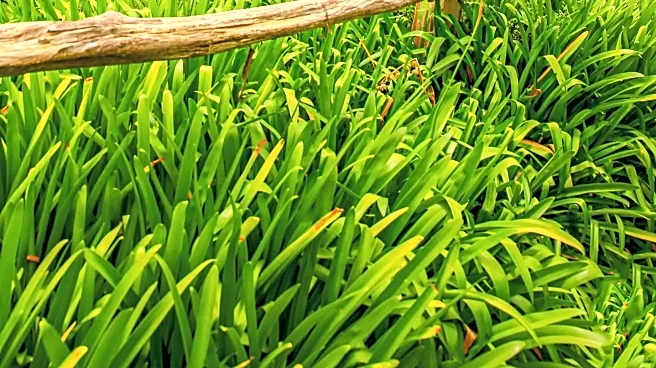What's Happening?
The Slow Food Indigenous Peoples’ Network, in collaboration with IFAD, is supporting a project in the community of Tzurumútaro, Michoacán, Mexico, aimed at cultivating medicinal gardens. Led by María Guadalupe
García Alonso, the initiative focuses on preserving the Purépecha indigenous people's traditional medicine and agricultural practices. The project involves creating family gardens to grow medicinal plants, which serve both as a source of nutrition and as a means to maintain cultural heritage. This effort is part of a broader strategy to combat the cultural erosion and economic marginalization faced by indigenous communities worldwide. The gardens are intended to pass on ancestral knowledge to younger generations, ensuring the survival of traditional practices and biodiversity.
Why It's Important?
The initiative is significant as it addresses the challenges faced by indigenous communities, including territorial encroachment and cultural erosion. By promoting the cultivation of medicinal plants, the project helps preserve the Purépecha people's traditional medicine, which is a holistic system focusing on cultural illnesses not recognized by Western medicine. This preservation is crucial for maintaining the community's identity and autonomy. Additionally, the project supports food security by encouraging the cultivation of diverse crops, reducing reliance on external markets. The initiative also highlights the ecological benefits of traditional polyculture farming, which contrasts with the environmental damage caused by monoculture practices promoted by foreign companies.
What's Next?
The project aims to expand the cultivation of medicinal plants and strengthen the community's food security. As the initiative progresses, it may inspire similar efforts in other indigenous communities, promoting cultural preservation and biodiversity. The success of the project could lead to increased recognition of the importance of traditional medicine and agricultural practices in maintaining ecological balance. Furthermore, the initiative may encourage policymakers to support indigenous-led projects that safeguard cultural heritage and promote sustainable agriculture.
Beyond the Headlines
The project underscores the broader implications of economic transformation on indigenous communities. The influx of foreign capital has led to a shift from traditional subsistence farming to monoculture, threatening food and cultural autonomy. This economic upheaval has resulted in social challenges, including increased drug dependencies among the youth. The initiative highlights the need for sustainable development that respects indigenous knowledge and practices, offering a model for cultural and ecological resilience.









